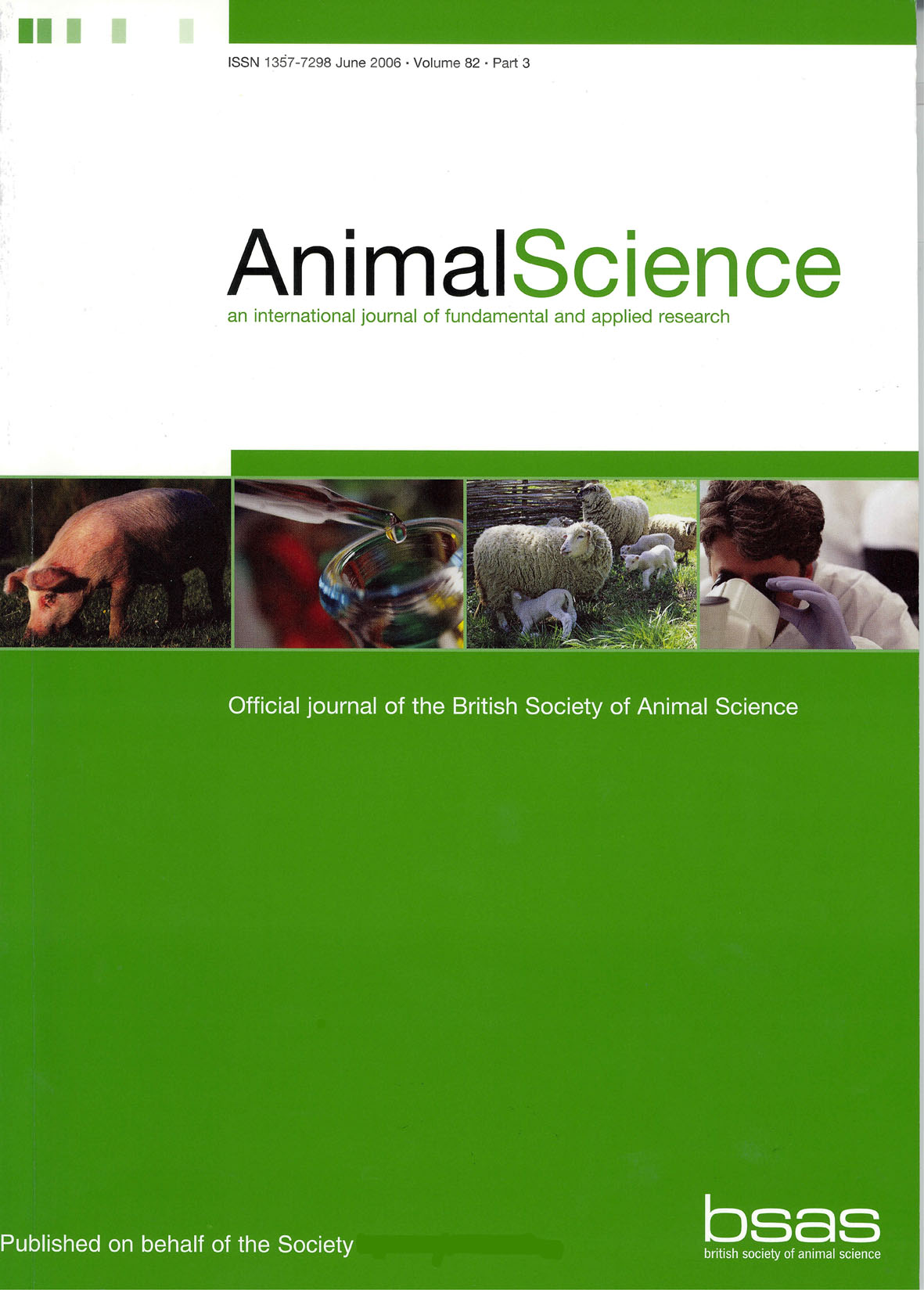Article contents
A comparison of body components of indigenous Saudi sheep breeds related to relative mature size and growth rate
Published online by Cambridge University Press: 02 September 2010
Abstract
Six male lambs from each of Najdi, Azvassi and Hejazi breeds of sheep were given the same diet and serially slaughtered at 3, 6, 9 and 12 months of age. Slaughter and growth data including estimates of body maturity were collected. Allometeric growth coefficients were obtained for body components and breed differences in the proportions of the components at the same degree of body maturity or groivth rate were computed.
The live weight of lambs slaughtered at 6, 9 and 12 months of age differed between the breeds. Awassi lambs were less mature than Najdi or Hejazi lambs at slaughter. Hejazi lambs grew (relative to their mature size) faster than lambs of the other two breeds. The allometric regression coefficients of body components were similar1 in the breeds except those of the head, skin and genital organs.
Body composition of the breeds was reasonably similar at the same degree of body maturity or growth rate except skin and feet proportions were higher in Awassi and Najdi lambs, respectively, than in the other two breeds. Thus the three breeds conform to the scaling rules relating growth characteristics to mature size.
- Type
- Research Article
- Information
- Copyright
- Copyright © British Society of Animal Science 1993
References
- 2
- Cited by


